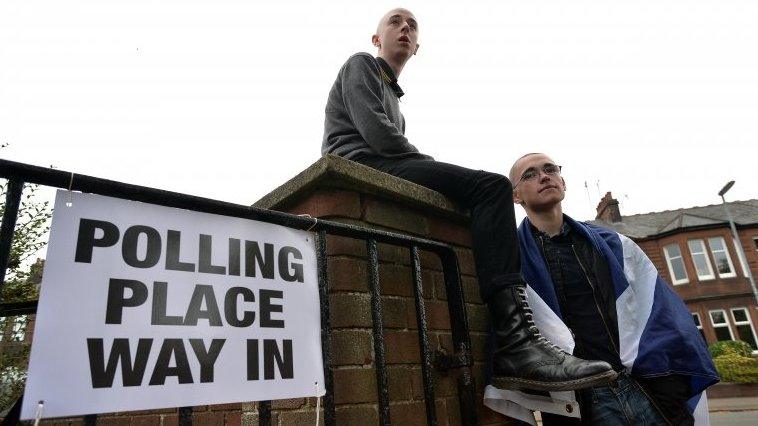Welsh elections 2021: Will 16 and 17-year-olds vote?
- Published
Welsh elections 2021: Younger voting age welcomed by teens
About 70,000 teenagers in Wales aged 16 and 17 will have the right to vote for the first time in the Welsh Parliament election in May - but do enough of this group know about it?
Research published just before the first lockdown in March 2020 suggested young people in Wales had a "very limited" understanding of Welsh politics.
Analysts from Beaufort Research, external spoke to 148 participants including 14 to 17-year-olds, disengaged adults and foreign nationals.
Among the research it found there was:
Lack of recognition over who was Wales' first minister
Lack of understanding over what the Welsh government did
Nevertheless the same researchers found that 72% of 16 to 17-year-olds did want the right to vote, compared with 12% against.
And since then, the coronavirus pandemic has offered a whole new level of awareness of the differences in who makes the rules in different parts of the UK, with Google searches over the last 12 months in Wales alone showing how many more people tried to find out what specific rules applied in what nation.
In February, polling by the Electoral Reform Society (ERS) and YouGov found 69% of 16 to 24-year-olds thought the Senedd elections were important - a higher proportion than in any other age group, except the over-65s.
'We pay taxes but couldn't decide who spends them'
"From the age of just 16 you can legally give birth to a child and claim child tax credit, get married with parental consent, give consent to medical treatment that could change your life, join the Army, have an alcoholic drink with a meal, legally smoke cigarettes and the list goes on," said 16-year-old Georgie from Swansea.

Georgie is looking forward to voting in an election for the first time
And up to now, the BBC young reporter competition entrant added, "we even have to pay taxes, and yet we are prevented from electing the man or woman who decides how to spend them".
"We still are being restrained from contributing to the choice of who is in charge of our country."
Georgie believes there is a general lack of understanding about politics and wants more to be done to change this in order for younger people to play a more significant part in the UK political system.
She feels more could be done in schools and colleges to educate people.
"We need to understand how votes work," she said.
"You need to be educated about the process of politics to be better informed and able to vote.
"There's so many different perspectives and you have to hear the wider views," she added.
"The debate that 16-year-olds should be allowed to vote has been around for many years, but now it is our turn to make it happen.
"There are well over a million 16-year-olds alone in the UK, and one way of many ways to start is if we managed to get them to start and sign a petition - surely that would get us noticed?
"That is the main point of this argument, to be noticed and have our say in our future.
"I recently turned 16. I strongly believe that anyone who is not classified as a minor [16-year-olds are not] should be given the opportunity to have their voice heard in a legal manner and the only possible way in my mind is through gaining the right to vote."
'There's a stigma behind teenagers voting'
David from Newport, is studying maths, business and physics.
The 17-year-old said: "It's going to be the first official time we are going to be heard by the Senedd and people who want to listen to us.
"You can't put a price on that."
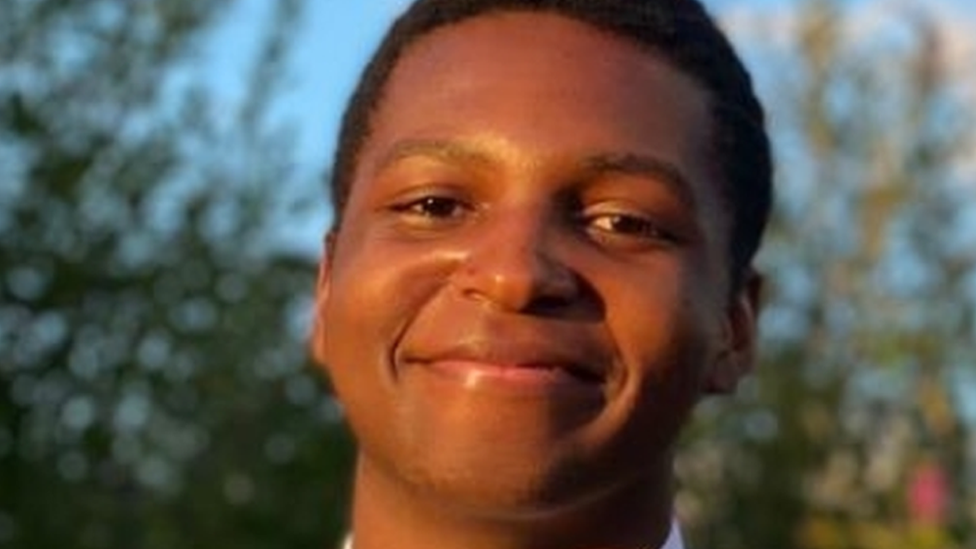
"You can't put a price" on getting your voice heard, David says
He thinks "there's a stigma behind teenagers" when it comes to voting.
"They are considered to be reckless, and people don't think they understand how the government and politics work, but there is a real drive for 16 and 17-year-olds to have a voice on ethical and social issues."
He described himself as the "anomaly" among his friends because he likes listening to what politicians have to say.
However, he thinks this is because "there's not anything in politics for young people".
A year before the Senedd elections, young people were found to have a "limited understanding"
For David, parties focusing on universities and bursaries is "not enough to make people talk about politics".
He wants parties to focus more on education, particularly on apprenticeships and clearer curriculums, adding: "It [university] might not be the future that some young people see themselves going into."
For those that are unsure about voting in the upcoming election, he said researching each party's manifesto will help people "truly understand what party is for you".
'It's our future just as much as it is anyone else's'
Lisha, 17, from Wrexham, said 16 and 17-year-olds "deserve to have a say in what happens to us".
"It's our future just as much as it is anyone else's," she said.
However, she said a lot of her friends were not aware they could vote in the upcoming election, or do not fully understand what they would be voting for.
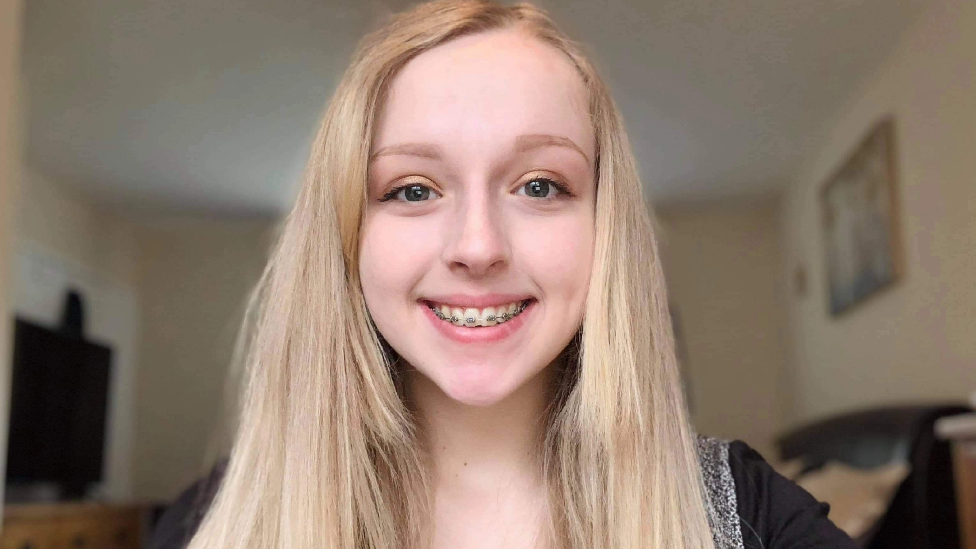
Lisha says parties could do more to make politics more understandable for first-time voters
"If the parties made more of an effort to make it understandable and promote it more, I think it would be better so more people my age would actually be interested in it."
She wants to see parties consider the environment, equality and LGBTQ+ issues.
"It's clear people my age want to make a difference and voting is an incredible thing to let us be able to do that," she added.
But Lisha stressed that politics needs to be made more accessible if parties want young people to "be more invested in our future".
'Voting allows us to shape our future'
Joel, from Newport, is "excited" to be able to vote for the first time after turning 16 a couple of weeks ago.
He thinks it is important because it "allows us to shape our future".
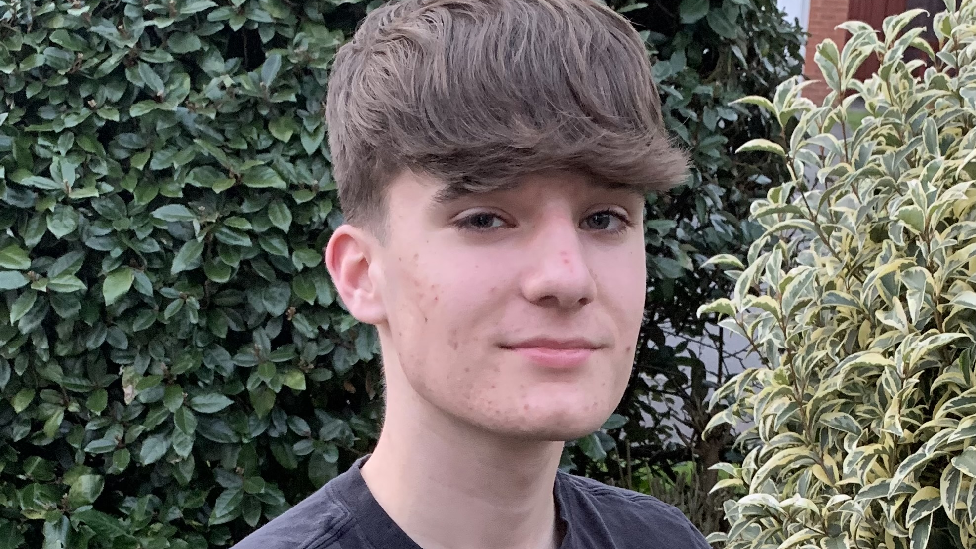
Joel is continuing to educate himself about politics
He said he does not "have the greatest knowledge of politics but more and more I'm looking into these things and what my vote would mean".
Young people are increasingly being made aware of politics, with climate change and Brexit being talking points in school, he said.
"It [politics] does come up, it's something you see in the news and something you're drawn to talking about.
"I see adverts from parties on different apps like Instagram.
"It helps in giving a greater understanding of what politics is and what it allows us to do."
- Published6 May 2021
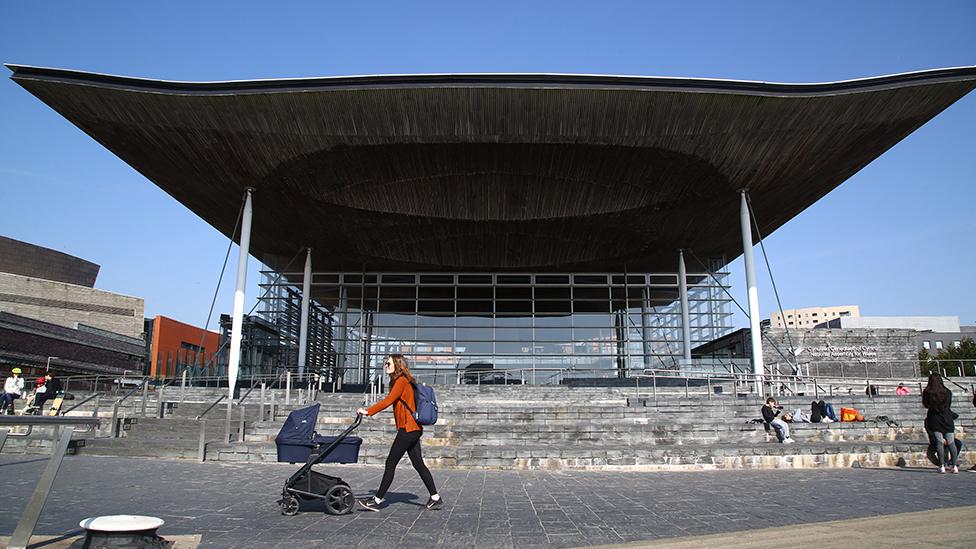
- Published22 April 2021
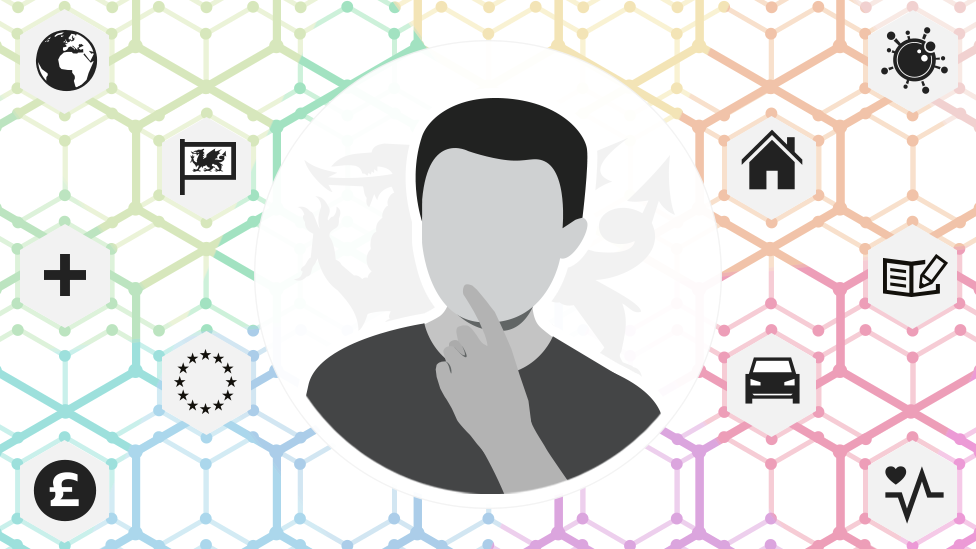
- Published27 November 2019
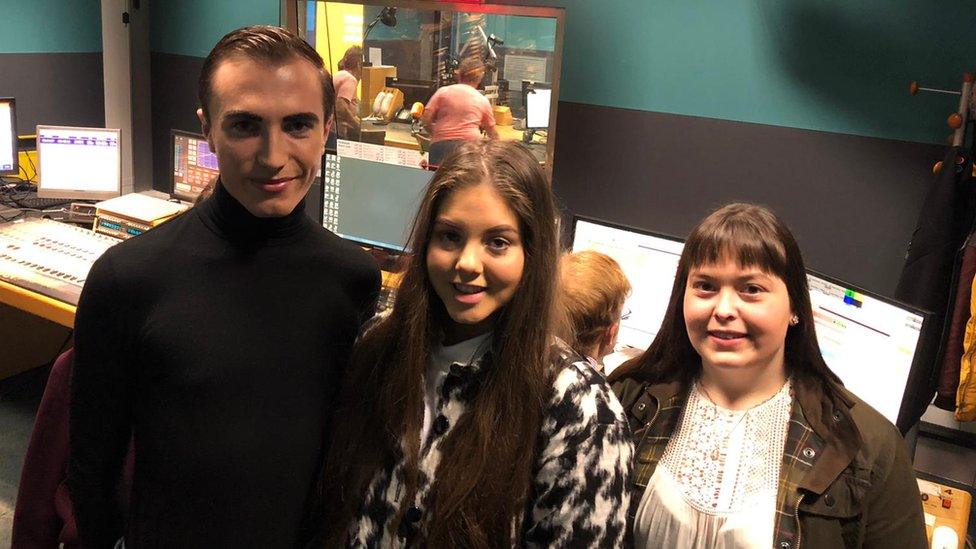
- Published25 March 2021
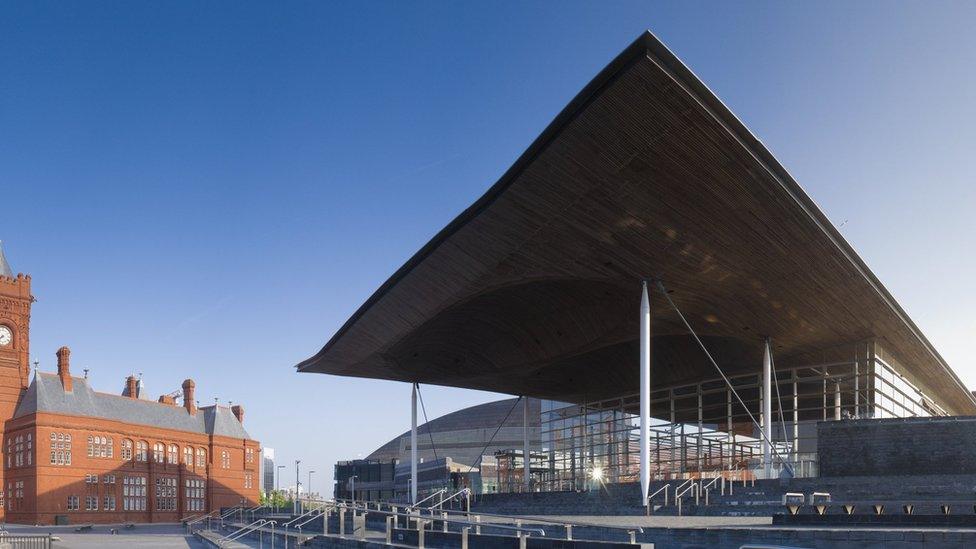
- Published12 December 2017
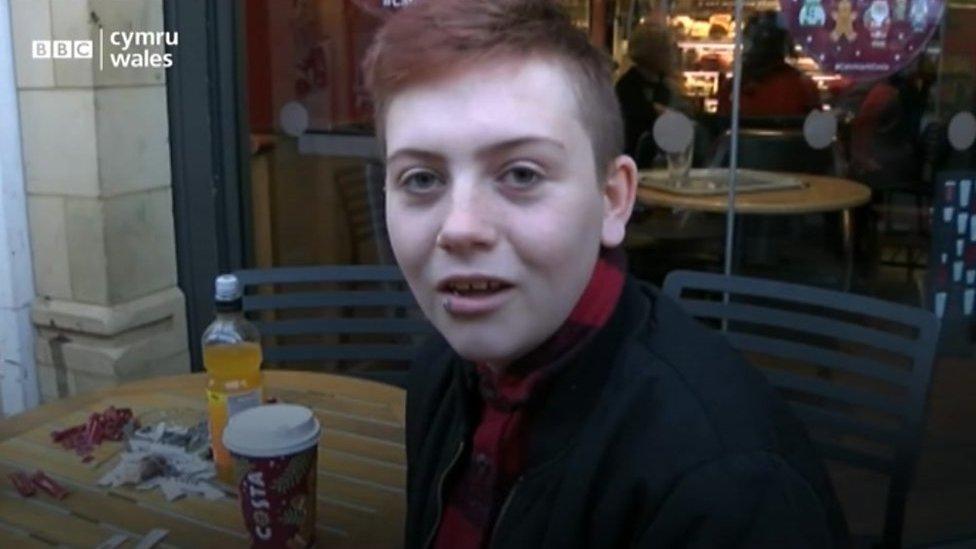
- Published3 March 2020
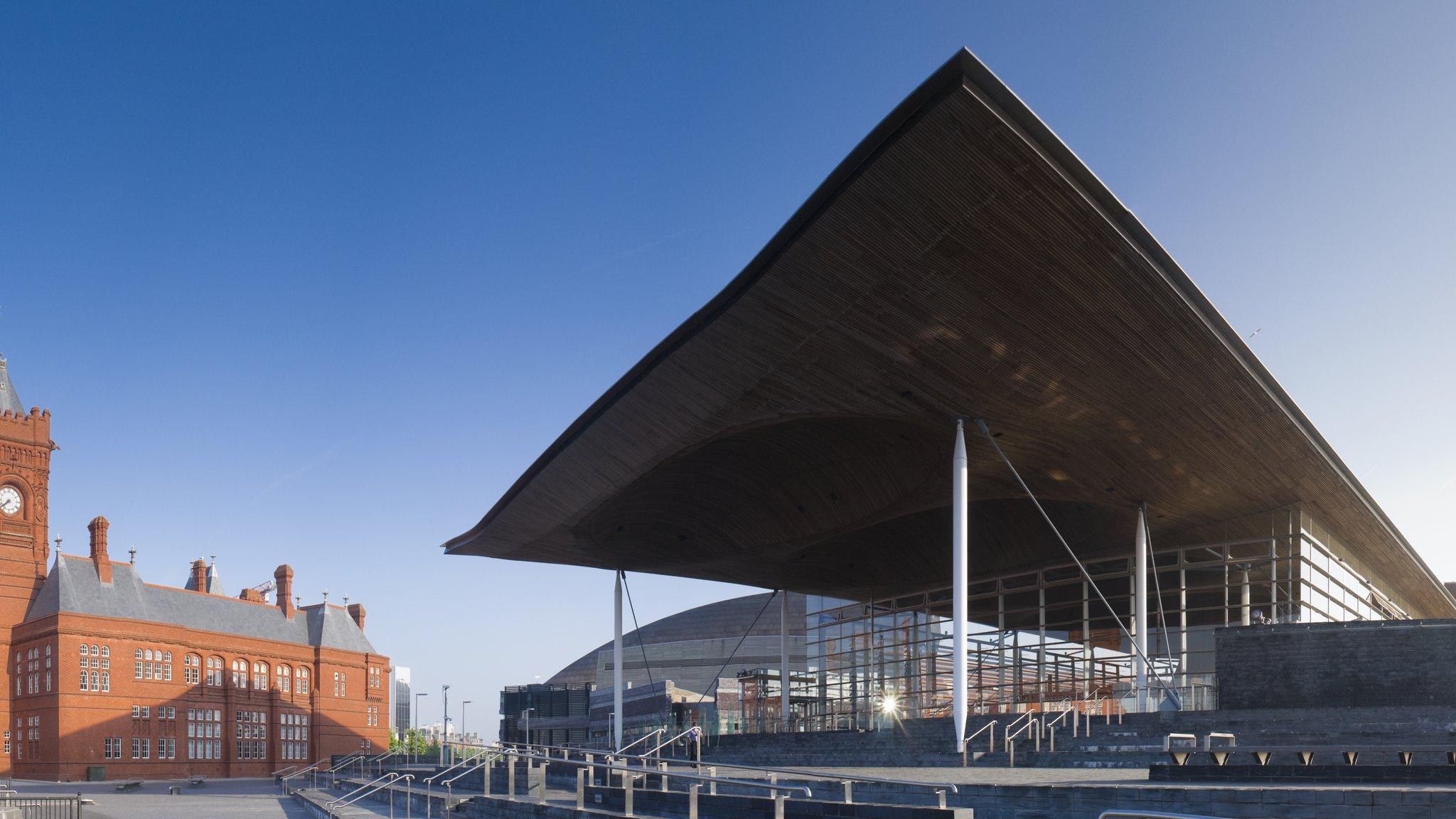
- Published19 September 2014
